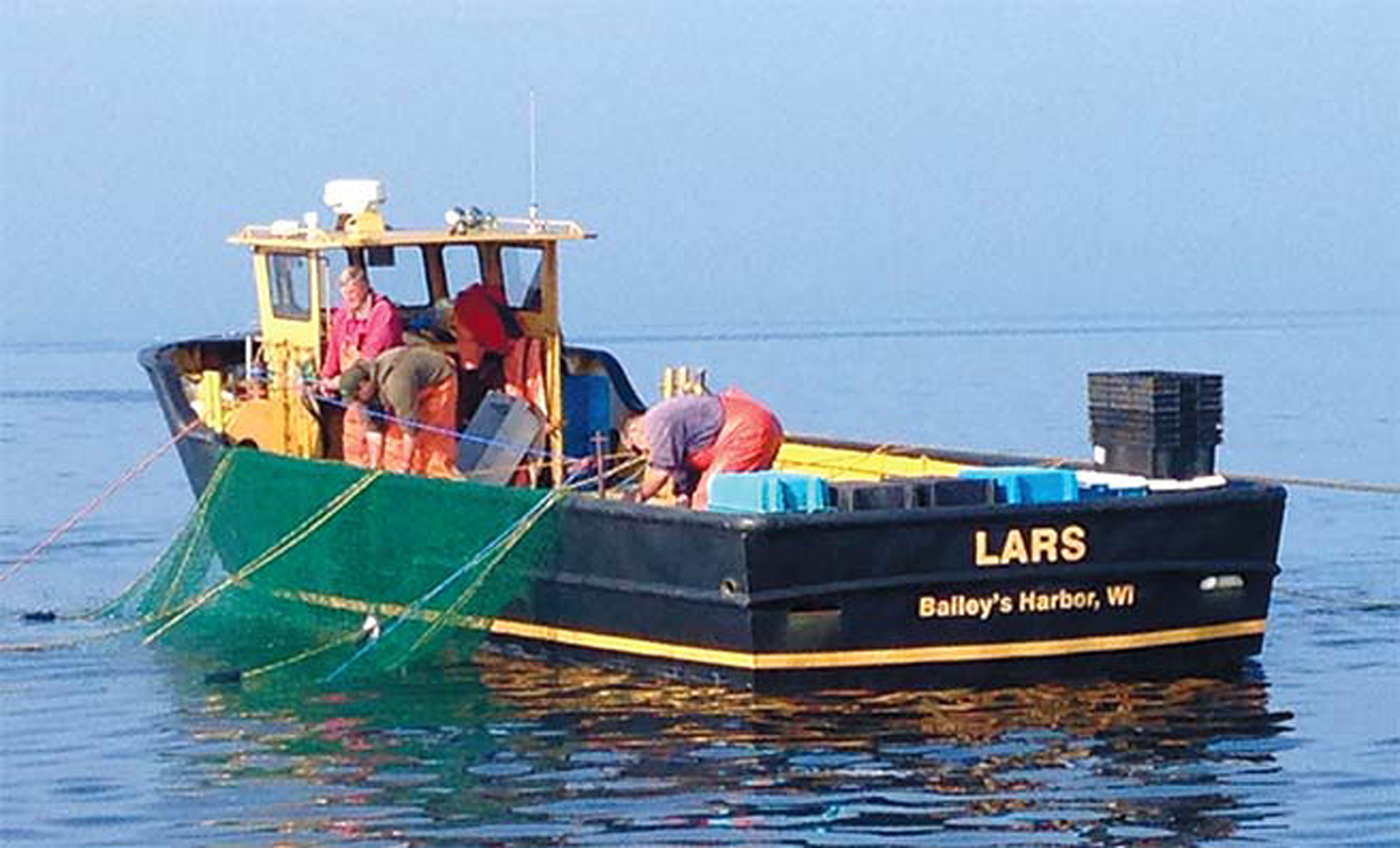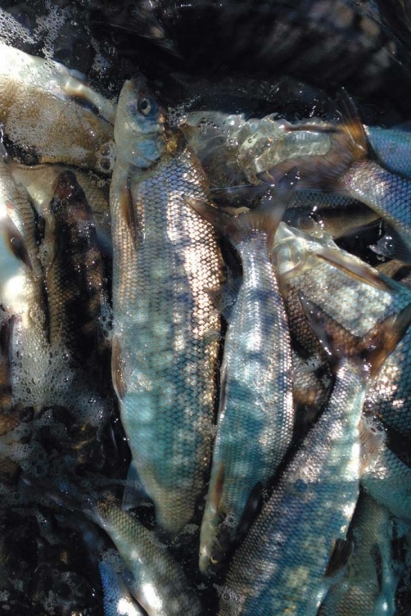Source of Friday Night Fish Fries Might be Surprising
edible Door published in 2016 and revised in 2024 for the launch of edibleNEW, serving Northeast Wisconsin
Is Assessment Key to Green Bay Fishery?
In his book Wooden Boats and Iron Men: History of Commercial Fishing in Northern Lake Michigan author Trygvie Jensen astutely reflects on the long-held attitudes of the commercial fisherman.
“The nature of his work shaped the way a fisherman thought about fish,” he writes. “Some fishermen regarded the fish they caught as farmers viewed the harvest. Both ended up in the marketplace and provided income that provided for their families. Fishermen prepared their harvest of fish for the market without giving them much thought. They believed that they were using a resource as it was intended to be used. They worked hard to make their living in all kinds of weather, risking their lives and using all of their skills to do what they knew best. Some fishermen developed a certain attitude toward certain species of fish….”
Jensen went on to point out that some fishermen planned to hand their business on to their sons and had concerns about conservation:
“They understood the ‘toleration’ level for certain species – how many could be safely harvested, maturity levels of the fish and certain times of the year they could be fished.”
Dennis Hickey of Hickey Bros. Fisheries in Baileys Harbor is no exception and is a prime example of a fishing family that dates all the way back to the mid-19th century when fishing, farming and logging were all part of the job description.
The Hickeys settled into fishing and Dennis hopes the family will carry on. It is showing promising signs with his son-in-law Todd and his brother Tate involved to provide the bridge to any of his three grandchildren who might be interested provided the fishery lasts that long.
Sit down and talk with Hickey and as proud as he is of his family’s commercial fishing legacy, it becomes very clear very quickly that the past is in the past and that something has to be done about the future.
“I can go on about this for quite awhile,” he says with a chuckle. He does but it all pretty much boils down to an imbalance caused by the proliferation of predator fish prized by sports fishermen and their impact on maintaining an adequate fishery for the food-eating public primarily in the form of perch and whitefish.
“You don’t hear much from the general public,” said Hickey, referring to those who populate the Friday night fish fries. Perch dinners have long been an end-of-work week staple in an area heavily populated by Catholics. “But the whitefish is all that’s left,” said Hickey, referring to the only remaining fish abundant enough to be harvested by his nets. Many of the locals who dig into their Friday night perch probably don’t realize, and maybe don’t care, that those perch are coming from Lake Erie, Canada or as far away as Europe.
It’s not that there aren’t perch in the bay, because Hickey admits occasionally they harvest enough to sell from their market but he insists there could be so many more.
“But they’re gone in a day,” said Hickey, referring to perch sales out of his store. Some of the blame for the falling fish numbers has been directed on commercial fishing nets but Hickey said the strict regulation and extensive paper work involved with their business combined with basic business sense would suggest otherwise.
“I only take 10 percent of what I catch,” said Hickey, who uses live-entrapment techniques. “If we took everything we’d fish ourselves out of business.”
Hickey understands the political process and the impact that game fish like walleye, bass and Muskie have on the tourist economy. But just as Jensen wrote about early commercial fishermen and their desire to conserve a fishery for future generations, he’s campaigning for a predator/prey assessment of the Lake Michigan waters, primarily Green Bay.
That assessment could rejuvenate the perch population and protect the whitefish that, he said, is coming under more and more stress from predators, especially the walleye. Massive planting efforts of walleye in Michigan have only exacerbated the problem.
“Green Bay could be producing a lot more than it is,” said Hickey, who has seen successful rehabilitation efforts fi rst hand. His fishing operation in Door County is only a part of his business that now extends well beyond Door County. The Hickeys have been called upon to aid conservation efforts in Western states to achieve a healthier balance of stock in lakes through what they call “assessment” fishing.
“We’re about at that point in the bay,” said Hickey, who admits the DNR probably doesn’t have enough staff to do a real assessment of walleyes. “But you can’t manage if you don’t know what’s there.”
Hickey has been pushing to allow the commercial fleet to help in just such an assessment.
“We see what’s out there every day,” he said, stressing the extensive reporting that goes into their catch and what the loss of a license could mean to their business should that reporting not be done or not completed accurately.
To insure the accuracy of such an assessment, Hickey said he wouldn’t undertake it unless DNR officials were on board to verify the numbers. But based on what many commercial fishermen have seen coming up in their nets, “there are too many walleye,” said Hickey, who has been the commercial fishing representative for Wisconsin on the Great Lakes Fishing Commission since 1986.
The slant towards more predatory fish has been expanded with the introduction of spotted muskies into Green Bay waters, only raising the concern for the future of available local fish for general public consumption.
But Hickey feels the future rests in the DNR’s ability to control the walleye population, a fish whose predatory instincts he feels are unmatched. Armed with photos of a walleye in his nets consuming fair-sized whitefish and even small 12- day-old fry showing cannibalistic behavior. It’s a trait Hickey said could ultimately diminish the walleye population should the forage base (young perch and whitefish) continue to decline.
Hickey said there’s a feeling that Green Bay and surrounding waters are so large that couldn’t happen. What he sees in his nets tells him otherwise. Hickey is insistent that it’s not too late to return the bay to a balance that could support both the sports fishing interests as well as the commercial fishing and the demands of the general public and its Friday night obsession.
Otherwise, based on what he’s seen in lakes in other parts of the country, “it’s just a matter of time,” said Hickey.





